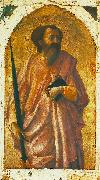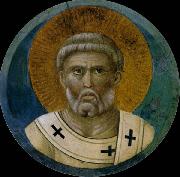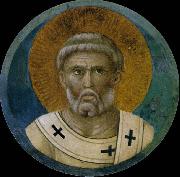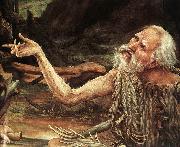Wholesale Oil Painting Reproductions No Minimum and Door to Door! |
|||||||||||
|
|
|||||||||||

|
|||||||||||
|
|
|
||||||||
All MASACCIO Oil Paintings |
||||||||
|
|
||||||||
|
|
||||||||
|
Artist Introduction: Italian Early Renaissance Painter, 1401-1428
was the first great painter of the Quattrocento period of the Italian Renaissance. His frescoes are the earliest monuments of Humanism, and introduce a plasticity previously unseen in figure painting. The name Masaccio is a humorous version of Tommaso, meaning "big", "fat", "clumsy" or "messy" Tom. The name was created to distinguish him from his principal collaborator, also called Tommaso, who came to be known as Masolino ("little/delicate Tom"). Despite his brief career, he had a profound influence on other artists. He was one of the first to use scientific perspective in his painting, employing techniques such as vanishing point in art for the first time. He also moved away from the Gothic style and elaborate ornamentation of artists like Gentile da Fabriano to a more natural mode that employed perspective for greater realism. Masaccio was born to Giovanni di Mone Cassa??i and Jacopa di Martinozzo in Castel San Giovanni di Altura, now San Giovanni Valdarno (now part of the province of Arezzo, Tuscany). His father was a notary and his mother the daughter of an innkeeper of Barberino di Mugello, a town a few miles south of Florence. His family name, Cassai, comes from the trade of his grandfather Simone and granduncle Lorenzo, who were carpenters - cabinet makers ("casse", hence "cassai"). His father died in 1406, when Tommaso was only five; in that year another brother was born, called Giovanni after the dead father. He also was to become a painter, with the nickname of "Scheggia" meaning "splinter". The mother was remarried to an elderly apothecary, Tedesco, who guaranteed Masaccio and his family a comfortable childhood. |
||||||||
|
|
||||||||
|
St Paul Painting ID:: 32392 |
1426
Tempera on wood, 51 x 30 cm |
|||||||
Height Width |
INS/CM Quality |
|||||||
|
X |
| |||||||
|
|
||||||||
All GIOTTO di Bondone Oil Paintings |
||||||||
|
|
||||||||
|
|
||||||||
|
Artist Introduction: Italian Early Renaissance Painter, 1267-1337
Italian painter and designer. In his own time and place he had an unrivalled reputation as the best painter and as an innovator, superior to all his predecessors, and he became the first post-Classical artist whose fame extended beyond his lifetime and native city. This was partly the consequence of the rich literary culture of two of the cities where he worked, Padua and Florence. Writing on art in Florence was pioneered by gifted authors and, although not quite art criticism, it involved the comparison of local artists in terms of quality. The most famous single appreciation is found in Dante's verses (Purgatory x) of 1315 or earlier. Exemplifying the transience of fame, first with poets and manuscript illuminators, Dante then remarked that the fame of Cimabue, who had supposed himself to be the leader in painting, had now been displaced by Giotto. Ironically, this text was one factor that forestalled the similar eclipse of Giotto's fame, which was clearly implied by the poet. |
||||||||
|
|
||||||||
|
|
St Paul Painting ID:: 44338 |
Oil on canvas
|
||||||
Height Width |
INS/CM Quality |
|||||||
|
X |
| |||||||
|
|
||||||||
All GIOTTO di Bondone Oil Paintings |
||||||||
|
|
||||||||
|
|
||||||||
|
Artist Introduction: Italian Early Renaissance Painter, 1267-1337
Italian painter and designer. In his own time and place he had an unrivalled reputation as the best painter and as an innovator, superior to all his predecessors, and he became the first post-Classical artist whose fame extended beyond his lifetime and native city. This was partly the consequence of the rich literary culture of two of the cities where he worked, Padua and Florence. Writing on art in Florence was pioneered by gifted authors and, although not quite art criticism, it involved the comparison of local artists in terms of quality. The most famous single appreciation is found in Dante's verses (Purgatory x) of 1315 or earlier. Exemplifying the transience of fame, first with poets and manuscript illuminators, Dante then remarked that the fame of Cimabue, who had supposed himself to be the leader in painting, had now been displaced by Giotto. Ironically, this text was one factor that forestalled the similar eclipse of Giotto's fame, which was clearly implied by the poet. |
||||||||
|
|
||||||||
|
|
St Paul Painting ID:: 62978 |
1290s Fresco Upper Church, San Francesco, Assisi This roundel is located on the inside wall of the fa?ade above the Ascension of Christ. Artist: GIOTTO di Bondone Painting Title: St Paul , 1301-1350 Painting Style: Italian , , religious |
||||||
Height Width |
INS/CM Quality |
|||||||
|
X |
| |||||||
|
|
||||||||
All MAULBERTSCH, Franz Anton Oil Paintings |
||||||||
|
|
||||||||
|
|
||||||||
|
Artist Introduction: Austrian Painter, 1724-1796
Austrian painter. His work as a painter of both oil paintings and frescoes on religious, mythological and occasionally worldly themes spanned the second half of the 18th century, adapting a Late Baroque training to the onset of Neo-classicism but remaining strikingly individual throughout. His fresco work, mostly still in situ in widespread central European locations, came at the end of an artistic tradition and was for long neglected, being far from major cultural centres; but it is now seen to establish him as one of the leading painters of his century |
||||||||
|
|
||||||||
|
|
St Paul Painting ID:: 64607 |
1759 Oil on canvas, 200 x 113 cm Hungarian National Gallery, Budapest The painting was comissioned for the Parish Church at Balassagyarmat, Hungary. Artist:MAULBERTSCH, Franz Anton Title: St Paul, 1751-1800, Austrian , painting , religious |
||||||
Height Width |
INS/CM Quality |
|||||||
|
X |
| |||||||
|
|
||||||||
All Matthias Grunewald Oil Paintings |
||||||||
|
|
||||||||
|
|
||||||||
|
Artist Introduction: German Northern Renaissance Painter, ca.1470-1528,was an important German Renaissance painter of religious works, who ignored Renaissance classicism to continue the expressive and intense style of late medieval Central European art into the 16th century. Only ten paintings (several consisting of many panels) and thirty-five drawings survive, all religious, although many others were lost at sea in the Baltic on their way to Sweden as war booty. His reputation was obscured until the late nineteenth century, and many of his paintings were attributed to Albrecht D??rer, who is now seen as his stylistic antithesis. His largest and most famous work is the Isenheim Altarpiece in Colmar, Alsace (now in France). The details of his life are unusually unclear for a painter of his significance at this date, despite the fact that his commissions show that he had reasonable recognition in his own lifetime. His real name remains uncertain, but was definitely not Grunewald; this was a mistake by the 17th-century writer, Joachim von Sandrart, who confused him with another artist. He is documented as "Master Mathis" or "Mathis the Painter" (Mathis der Maler), and as using as surname both Gothart and Neithardt - this last may have been his surname, or more likely that of his wife. He was probably born in Wurzburg in the 1470s. It is possible he was a pupil of Hans Holbein the Elder. From about 1500 he seems to have lived at Seligenstadt, when not working elsewhere. His first dated painting is probably in Munich, dated 1503 on a much later note which apparently records an older inscription. From about 1510 to 1525 he served in the Rhineland as court painter, |
||||||||
|
|
||||||||
|
|
St Paul Painting ID:: 91254 |
1515(1515)
Medium oil on panel
cyf |
||||||
Height Width |
INS/CM Quality |
|||||||
|
X |
| |||||||
|
|
||||||||
|
Prev Next
|
||||||||
|
|
||||||||
|
Related Paintings to Matthias Grunewald :. |
||||||||
|
|
||||||||
|
CONTACT US |





